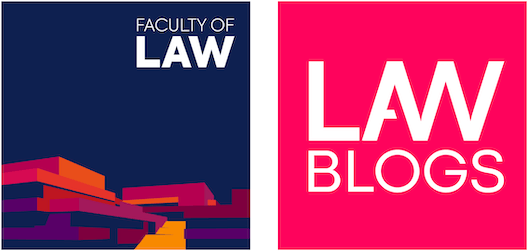Anup Surendranath on ‘Cows, Freedoms and the Indian Constitution’
The South Asia Law Discussion Group hosted Dr Anup Surendranath, Assistant Professor at National Law University, Delhi, for a talk titled ‘Cows, Freedoms and the Indian Constitution’. The primary discussant was Dr Tarunabh Khaitan (Associate Professor in Law, Wadham College, University of Oxford). Surendranath reflected on important constitutional questions raised by anti-cow slaughter laws – questions around the freedom of religion, liberty under Article 21 of the Indian Constitution, and the role for the Directive Principles of State Policy in constitutional adjudication.
Posted:
Time to read:
Surendranath used the context of anti-cow slaughter legislation in India as an opportunity to critique the jurisprudence of the Supreme Court on important constitutional issues. At the same time, Surendranath reflected that the context of anti-cow slaughter legislation was not, perhaps, the best field to resolve these immensely important constitutional questions, due to the polarising nature of the issue. The political discourse surrounding anti-cow slaughter laws involves strong clashes between the religious sentiments of Hindu Brahminical groups and the views of secularists, Muslims, and Dalits. Although there is complete dissonance between this political discourse and the arguments explicitly presented in the judicial treatment of the subject (where these political debates find no mention), we must acknowledge the politically charged context in which these decisions are made.
Freedom of Religion
Freedom of religion claims under the Indian Constitution have been subject to the ‘essential practices doctrine’ developed by the Supreme Court. The structure of adjudication of such claims involves courts deciding whether the practice in question constitutes an ‘essential practice’ under a specific religion, and therefore deserves constitutional protection. In the context of laws prohibiting cow slaughter, a freedom of religion claim raised by Muslims to challenge such laws can succeed only if cow slaughter is determined by the courts to be essential to the Islamic faith. Such a claim to religious freedom was rejected very early in the jurisprudence of the Supreme Court.
Surendranath argued that the courts are institutionally unsuited to make determinations regarding what constitutes an ‘essential practice’ under any religion as they lack the institutional competence and expertise to decide such questions. He proposed an alternative, judicially manageable model of adjudication of freedom of religion claims. Under this model, courts would be required to determine whether a claim for religious freedom relies upon a ‘sincerely held belief’ and therefore deserves protection under Articles 25 and 26. Any state interference with such sincerely held belief would be constitutionally permissible only when it is strictly in accordance with the explicitly identified exceptions in Articles 25 and 26.
Decisional Autonomy
While the Bombay High Court, adjudicating the challenge to a Maharashtra legislation prohibiting cow slaughter, deliberated on the issue of whether such laws impinge on the autonomy to eat what one wants under Article 21, the Supreme Court has seldom deliberated on this issue while adjudicating challenges to anti-cow slaughter laws.
The jurisprudence of the Indian courts on the right to life and personal liberty was critiqued by Surendranath for its treatment of a wide range of claims to the same, deferential standard of review. The courts have subject claims invoking the ‘right to sleep’ as well as claims invoking the right against torture, to the deferential ‘reasonableness’ standard of review. Surendranath argued, instead, for the recognition of a hierarchy of rights under Article 21, constituting core and non-core rights. He also argued for a pyramidal structure of review, where state action impinging core Article 21 rights are subject to a higher standard of review, requiring rigorous justification, whereas state action impinging on non-core Article 21 rights are subject to a lower standard of review, allowing greater leeway to the state.
The Anti-Discrimination Provision
Both Surendranath and Khaitan observed that constitutional adjudication on legislation prohibiting cow slaughter does not discuss Article 15, to explore whether such legislation discriminates on the grounds of caste or religion, as these have a disparate impact on Muslims and Dalits. This is reflective of a wider neglect in the jurisprudence of the Indian Supreme Court in developing the potential of Article 15 as a tool to further equality in India.
Use of Directive Principles in Constitutional Adjudication
Khaitan argued that the directive principles of state policy served as an important device for constitutional consensus-building during the constitutional drafting and ratification process, by achieving the expressive accommodation of ideological dissenters. The directive on cow slaughter, for instance, was an important tool to accommodate the expressive demands of Hindu cultural nationalists, and thereby to obtain their consent to the Constitution.
Surendranath emphasised, and Khaitan agreed, that the appropriate role of directive principles in constitutional adjudication was a separate and important issue. Although Article 48 provides for the prohibition of cow slaughter, what role should this play in adjudicating fundamental rights claims? While in the 1950s the Indian Supreme Court argued that the directive principles had no relevance as interpretive tools in adjudicating fundamental rights claims, it has now accepted that fundamental rights must be interpreted in a manner that furthers directive principles. However, Surendranath argued, that the means adopted to further the directive principles, must be subject to the full rigour of a fundamental rights analysis. The directives must be furthered by the state only through means that do not impinge on fundamental rights.
Share:

